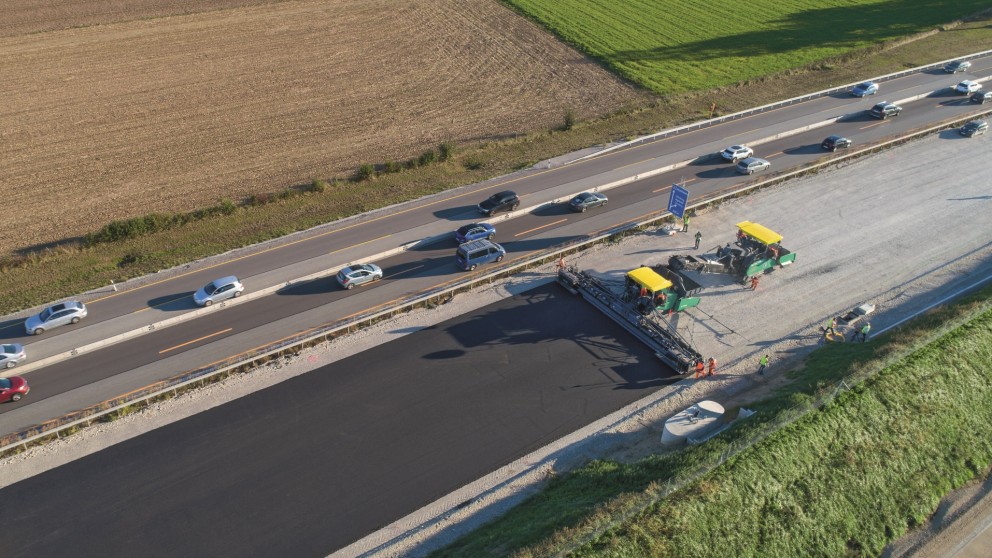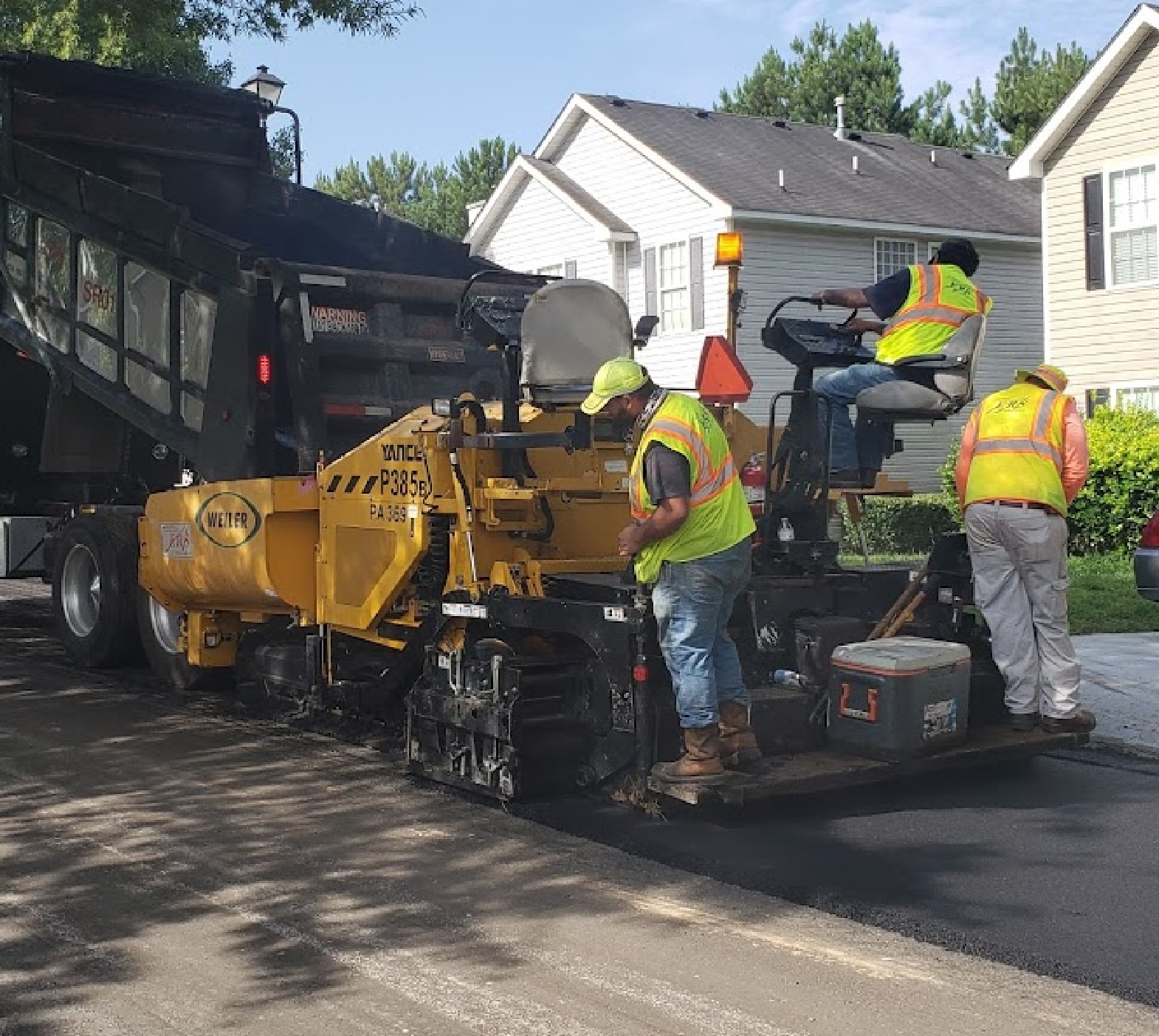Recognizing the Different Kinds Of Asphalt Paving Available Today
In the realm of building and construction and infrastructure, a thorough understanding of the various sorts of asphalt paving is essential for optimal project results. From the durable Hot Mix Asphalt, created for high-traffic locations, to the ecologically aware Porous Asphalt that helps with water monitoring, each type presents distinctive advantages tailored to details needs. Additionally, factors to consider such as sturdiness, installment rate, and sustainability even more make complex the decision-making procedure. As we check out these alternatives, it becomes obvious that the selection of asphalt paving can substantially influence not simply immediate performance yet also long-lasting capability and ecological factors to consider.

Hot Mix Asphalt
What makes hot mix asphalt a favored selection for roadway building and repair work? Warm mix asphalt (HMA) is preferred for its sturdiness, flexibility, and performance under differing conditions.
HMA's capability to be customized to particular project needs is one more considerable advantage. Various gradations and formulations can be used to enhance homes such as flexibility, resistance to contortion, and durability. In addition, warm mix asphalt can be quickly mounted and open up to traffic, minimizing interruption throughout building and construction.
Environmental considerations additionally contribute in the preference for HMA. The product is recyclable, and reclaimed asphalt sidewalk (RAP) can be recycled, advertising sustainability in roadway construction techniques. In general, hot mix asphalt sticks out as a reputable option, properly offering a durable, high-performance surface that satisfies the needs of contemporary framework.
Cold Mix Asphalt
Cold mix asphalt is a versatile option to warm mix asphalt, particularly matched for particular applications such as patching and surface treatments. This kind of asphalt is created at ambient temperatures, permitting less complicated handling and application without the need for substantial heating devices.
Typically composed of asphalt emulsions or lowerings, cold mix asphalt can be blended on-site or bought pre-mixed. Its residential or commercial properties enable it to bind well with existing sidewalk, making it an efficient remedy for repairing pockets, splits, and other surface flaws. In addition, it can be used in a variety of weather, giving a practical option for year-round maintenance.

However, while chilly mix asphalt is ideal for momentary fixes, it may not give the same durability or resilience as warm mix asphalt under rush hour problems. It is best utilized for low-traffic areas or as a momentary remedy till more irreversible fixings can be performed.
Warm Mix Asphalt
While hot mix asphalt has long been the criterion for roadway construction, warm mix asphalt (WMA) has become an ingenious choice that stabilizes efficiency with ecological factors to consider. WMA is produced at considerably lower temperature levels-- commonly in between 215 ° F and 275 ° F-- contrasted to hot mix asphalt, which is heated to around 300 ° F. This reduction in temperature not only decreases power consumption but likewise lowers greenhouse gas discharges during production.
The technology behind WMA involves using additives or techniques that allow better workability at lower temperatures. These can consist of chemical ingredients, frothing procedures, or a combination of both. As a result, WMA maintains the necessary buildings for longevity and efficiency while using a much more eco-friendly option.

Porous Asphalt
Permeable asphalt stands for a forward-thinking approach in pavement design, prioritizing both functionality and environmental sustainability. This ingenious material is particularly crafted to enable water to permeate via its surface area, properly reducing runoff and promoting groundwater recharge. Therefore, porous asphalt is an exceptional selection for locations susceptible to flooding or where stormwater administration is important.
The make-up of permeable asphalt varies from standard asphalt, including a higher percentage of voids that facilitate drainage. This residential or commercial go to this site property not only decreases surface water buildup yet likewise assists reduce concerns like hydroplaning and boosts lorry grip during wet problems. asphalt paving acworth ga. Additionally, porous asphalt can contribute to metropolitan warmth island decrease, as it enables higher evaporation and cooling results in metropolitan atmospheres
In regards to setup, porous asphalt calls for careful factor to consider of underlying water drainage systems to make sure ideal performance. Maintenance typically entails routine evaluations and cleaning up to avoid obstructing from debris, which can impair its permeability. In general, porous asphalt acts as visit a sustainable paving remedy that straightens with contemporary ecological objectives, making it a progressively prominent selection for both private and public jobs.
Rubberized Asphalt
Rubberized asphalt is a sophisticated paving product that integrates recycled rubber, commonly sourced from scrap tires, into the asphalt mix. This cutting-edge strategy not only boosts the performance of standard asphalt yet also advertises ecological sustainability by reusing waste products. The addition of rubber enhances the flexibility and resilience of the pavement, making it immune to fracturing and deformation under varying temperature level conditions.
Among the substantial benefits of rubberized asphalt is its ability to decrease sound air pollution. The rubber particles take in noise, causing quieter highways, which is particularly beneficial in urban areas. Additionally, this sort of asphalt supplies boosted skid resistance, enhancing security for automobiles.
Rubberized asphalt likewise adds to prolonging the life-span of road surface areas, causing reduced maintenance prices over time. This durability is particularly important for high-traffic areas where wear and tear are accelerated. In addition, its resistance to dampness infiltration aids lessen the risk of water damage, further enhancing durability.
Conclusion
In recap, the selection of asphalt paving types-- Warm Mix Asphalt, Cold Mix Asphalt, Cozy Mix Asphalt, Porous Asphalt, and Rubberized Asphalt-- each meet unique features that satisfy diverse building and construction and upkeep requirements. These options not only enhance roadway high quality but also add to sustainability with decreased energy intake and enhanced water management. Recognizing these distinctions is important for choosing the appropriate asphalt kind, eventually ensuring efficient and reliable paving remedies in different environments.
From the durable Warm Mix Asphalt, created for high-traffic areas, to the ecologically conscious Porous Asphalt that promotes water administration, each type offers distinct benefits tailored to certain needs.Commonly made up of asphalt solutions or lowerings, cool mix asphalt can be blended on-site or acquired pre-mixed.While hot mix asphalt has actually long been the requirement for roadway construction, cozy mix asphalt (WMA) has actually emerged as a cutting-edge option that stabilizes performance with environmental factors to consider.Rubberized asphalt is an advanced paving material that incorporates recycled rubber, normally sourced from scrap tires, right into the asphalt mix.In summary, the range of asphalt paving kinds-- Hot Mix Asphalt, Cold Mix Asphalt, Cozy Mix Asphalt, Porous Asphalt, and Rubberized Asphalt-- each meet distinct features that cater to varied construction and upkeep demands.